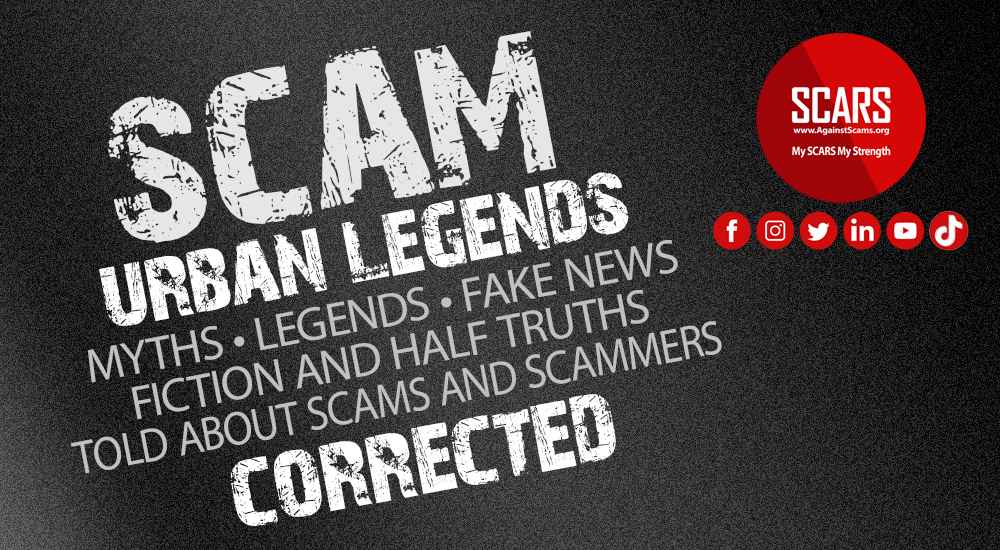Scammer Urban Legends: Scammer Threats & Blackmail
Scammer Threats & Blackmail Are Real – Real Lies!
Are They Coming To Get You? No
Originally published January 2018, Updated September 2018
CHAPTER FIVE: The Threats Scammers Make
Scammer Threats And Blackmail – Are they real?
After you have been scammed, a multitude of feelings are going through you after you hear their threats.
Shock, Anger, Denial, Confusion, Fear, And Paralysis!
You have discovered that someone you trusted and thought was going to be a part of your life was not real
It Was All A Lie!
Obviously, it was a business for the scammer and their goal was to steal money from you – to make you a willing participant in their fraud. To manipulate you into doing exactly what they wanted you to do.
In many cases, they even get victims to participate in scamming others, by receiving money or goods, and then sending them on to the scammer. Most don’t know they are involved in crime, a small number do. Those are the Money Mules!
However, you stopped it. You discovered it was all a scam.
Then You Get A New Message: Threatening You!
Threats can come in many forms – they can be threats of:
- Violence if you tell anyone or report them
- Blackmail – you have to pay them or they will release compromising photos or messages to your family, friends, employer, or just to the public
- Threats against your family or friends
Of Course, You Panic!
You may have reported the scammer, and now you are afraid that the scammer will find out so you demand that the report is removed. You are afraid that someone will come and attack you.
You may also be considering paying the blackmail.
Let’s Look At The Facts!
- Scammers by definition are liars. It is what they do. It is how they make their living.
- Scammers tell you that they have people everywhere. But this is just an urban legend.
- Yes, there are Nigerians (for example) all over the planet, but they are not organized into a Sicilian-style Mafia (except in Nigeria or Ghana or their home countries). Even in the U.K. Nigerians are not going to run out an attack people.
- Scammers are cowards, it is why they scam!
- Yes, if you were to go to Africa, you will take your life in your hands. Visiting an African country to track down a scammer is EXTREMELY dangerous. Yet, ironically, this is the first thought of many scam victims – they are going to African and get their scammers arrested – this would be compounding one failure in judgment with many more.
As long as you don’t go to visit them, you have the “home field” advantage. Meaning that you have YOUR police and governmental protections. While your police may not do anything about a scammer in another country, they very much will do something about threats of violence by anyone IN your country against you. You are safe, but you should report all threats to your police so they know too.
So Do Not Panic!
Before you go there though, remember what scammers are:
- They are liars
- They are cowards
- They hide behind fake faces and names
- They live in countries half a planet away
- When they claim to be in your country that is almost always a lie – though they may have seduced some poor soul to act as a mule for them
- Scammers are out for the money and do not waste time on making examples of victims – because it means nothing to other victims
- Scammers do not have the time to waste on people who will not pay – they need their time for paying victims – there are plenty of those
Here is what you should always do in the event of a scam followed by blackmail or any kind:
- Save all evidence, even the embarrassing parts
- Get links to all profiles, pages, etc. – save them, then block all access to you – remember to block email, social media, phone calls, etc.
- Report the scammers on www.Anyscam.com immediately as a COBALT ALERT – it will immediately flag the danger to others
- Report the scam and the threat to your LOCAL Police (forget the FBI or ActionFraud – the threat makes it local) – in some countries you would report this to a national police. By reporting the scam and the threats and blackmail you alert your local police to the real issues. There is nearly no chance that anything will happen, but if you get phone calls they will take action.
- Odds are that you will be added to a list for future scammers to try to work you but remember that scammers are liars and fakes. So just block and ignore.
If You Get A Threat, Relax!
Scammers do not go door to door intimidating people around the world – they hide like cowards in their own country, almost never placing themselves at risk.
If scammers ever did act on their threats they KNOW that Western governments would respond quite differently. They count on the fact that most law enforcement is complacent since it is “just” a monetary crime.
Again – RELAX
Now let’s talk about SEXTORTION or COMPROMISING MESSAGES
First off, remember scammers are constantly working hundreds of victims at the same time. They are lucky if they can even remember your name.
But it is true that you probably gave them access to your life, your friends, and your family.
If you were foolish enough to send them things that could compromise you, then the risk is a little higher.
BUT again, remember, scammers do not waste time on victims who will not pay.
It is up to you to show the scammer that you are a waste of their time BY NOT COMMUNICATING WITH THEM.
IF YOU KEEP TALKING TO THEM, THEY KNOW YOU ARE STILL UNDER THEIR CONTROL!
You may have to make a “Risk / Reward” calculation. What is the worst that they can do to you?
Let’s say, for example, that you shared a nude photo – obviously, you don’t want that shared. However, if the scammer did share it they lose their advantage, right? Why would you pay if they expose the worst?
Sextortion is usually real when it is someone local and who knows you, but the African scammers just threaten – just more lies.
So the threat is all that has value to them, not the actuality of following through!
From your perspective, all you need to do is let your friends and family know you are being threatened by some hater or troll online – who is threatening to “Photoshop” your photos – everyone you know will accept that answer even if a nude photo showed up.
To learn more about Sextortion see our RSN™ Guide »
There Is A Threat They Cary Out Though!
One of the things scammers do, usually before you are aware of it is to steal your face and identity to scam your family and friends. They may believe your scam is coming to an end, so they will try to get more money from your friends, family, and contacts. In some cases, they will have done it before you end the scam, in some cases as a sort of revenge for you ending the scam.
These are all reasons why we try to convince victims NOT to confront the scammer. Just end it, and move on. Sadly, most victims seem compelled to step in front of the speeding truck instead. Getting a scammer upset at you is never a wise thing to do, but victims never think about consequences they just act, which is how they were scammed in the first place.
So you should be very vigilant about checking for your name on Facebook and Google to see if your name has been taken – do this monthly just so you will know. Also, do periodic Google images search for any public images on your profile to see if they have been stolen.
In Summary, The Threats Are Almost Always Just More Lies.
In 27 years, we have actually NEVER had someone that had a threat turn into reality. The fear of the threat is what the scammers are counting on, and what will cause you to give in.
Just remember this and don’t collapse.
Don’t Surrender, Or They Will Never Go Away.
As long as they sense you are willing to give in, they will never stop.
You can learn more in the RSN™ Guide on Blackmail Scams »



![Scammer Urban Legends: Chapter 5 - Scammer Threats & Blackmail [UPDATED] 1](https://romancescamsnow.com/wp-content/uploads/2018/09/sextortion.png)


No never tried to scam my friends. We were engaged on Facebook. Him stealing my identity happened months after the scam ended. He contacted me to blackm me. when I refused, he responded that I would know what it was like to be called a scammer. I blocked him and found out about my stolen identity later. He also threaten me that real scammers where coming for me. The police convinced me to go into hiding
My scammer followed through with one of his threats. He took my photos and my name and created fake profiles to scam others
That is why we tell everyone never to confront a scammer. Simply cut them off and block them so they never know. Sadly, most people feel compelled to step in front of the bus. However, your scammer probably was using your ID to try to scam your friends even before you knew.
The article on what a scammer might or might not due. Thank you for all you are doing in trying to get these scammers off the Internet. God Bless yo!
The person who scammed me now has over 11 Accounts. I know of 3 on Facebook.When I left Skype, he had over 11 also. When I was scammed,I had to search for help and one of my Police Officer’s came to bat for me, I was able to get most of my money back.
That is very good. Almost no one gets their money back.
I was scammed by a certain Brian HART and lost 220 000 € and am completely ruined now.
Since 2013, when pretending to be in Syria as US NAvy commander, then returned to the States where the Army owed him payment for his missions — the “Army” never paid and I am ruined. The photos he sent me I now find on scammer lists on several names. He is a crook
and liveson scamming. I reported him to the French police – they don’t do anything. He is
probably a black living in Ghana.
I am desperate.